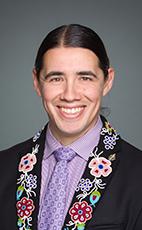Mr. Speaker, I remember back in 1995 or 1996, as a young child, watching some of the news surrounding indigenous status and the status of indigenous women in this country. I remember listening to an indigenous woman who said, “I am not just simply a second-class citizen in Canada. I am a third-class citizen, because I am a woman.”
I have heard about equality in this debate. What does equality mean in this country, when the outcomes are so different? What does equality mean when we see the Gladue case in Alberta, where a woman in the justice system was treated very unequally? She was essentially cut up inside, with a six-inch gash in her vagina, and the judge let the perpetrator off. Only after an outcry did the prosecutor in Alberta actually take it back to court. That is a difference in outcomes.
I have heard lots of interesting comments in the House. One of the comments I heard was that because this bill does not deal with all of the justice issues related to the Criminal Code, then it should not apply, that it has no importance, that we need to deal with all of it at the same time. Well, let us take that first step.
I do not mean to get emotional about this, but I think this impacts a lot of people I know.
Bill S-221 was an act to amend the Criminal Code with regard to assaults against public transit operators. Now, from 1997 to 2011, there were 23 taxi driver homicides. Parliament modified the law.
In 2013 alone, just in RCMP jurisdictions in Canada, there were 42 recorded female homicide victims, and 17 of those were indigenous. That is 40%. That is a fact. Is that equality? We talk about equality, but the outcomes seem to be so different.
What are we actually doing? It is great to have some programs and spend some money. I wear the moosehide patch all the time, but what does that really change? I have people asking me all the time what it means. No one seems to know. It is about indigenous men and boys taking a stand against violence against indigenous women and girls, and children, How many people keep asking every day what I am wearing that for and what it means? Yet we have handed out a million of them across the country.
Do members know we also had a bill called Bill C-35, the Justice for Animals in Service Act? It was known as Quanto's Law. Quanto was a police dog. He was killed while on duty. This bill created a specific new offence prohibiting the killing or injuring of a law enforcement animal, and it created a minimum sentence. Who is worth more: Quanto, Tina Fontaine, Gladue, Helen Betty Osborne?
There are lots of organizations that support this bill. I could list them all. The First Nations of Saskatchewan and the Assembly of First Nations have passed resolutions in support of this, and there are women's groups across the Prairies that have asked for legislation on this issue. It deserves a full and wholesome debate in this House.
I hope the government takes this bill and moves forward, because I am sure the missing and murdered indigenous women's inquiry will have something about the justice system. I hope we actually go ahead and change some of these laws so that equality means the equality of outcomes, so that people walking around the streets of downtown Winnipeg will know that they are just as valued as anyone else, no matter what their birth in this country.

